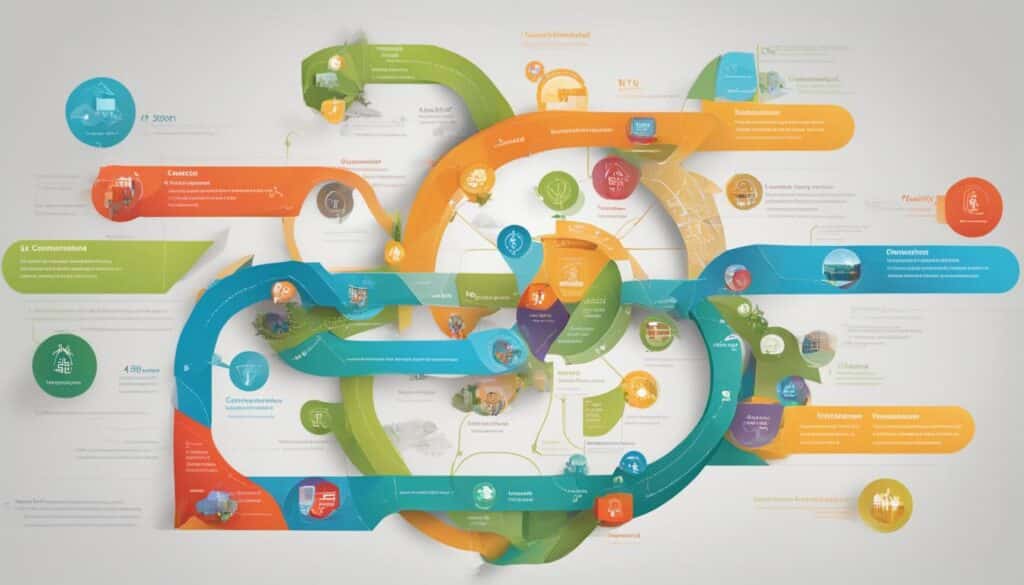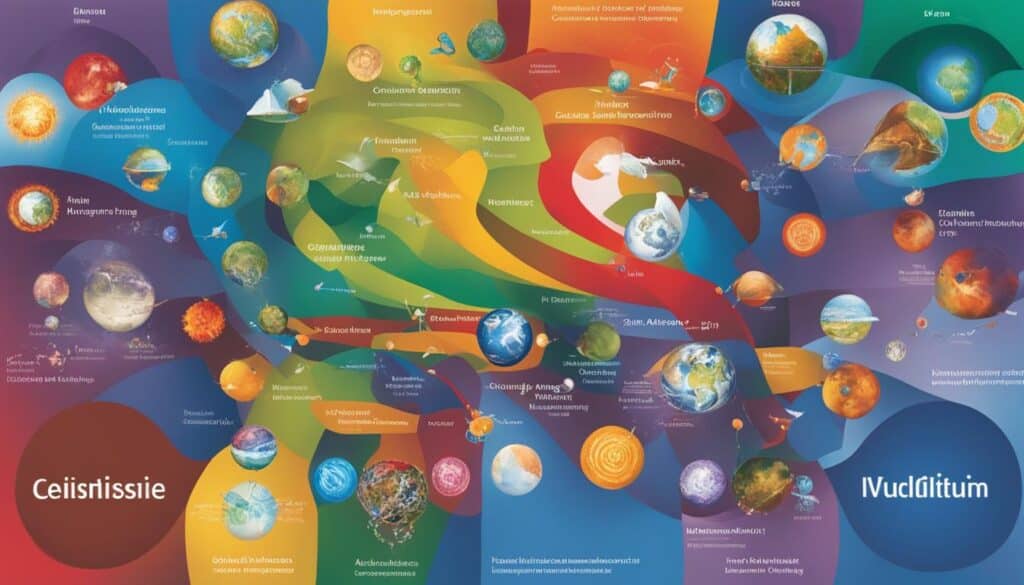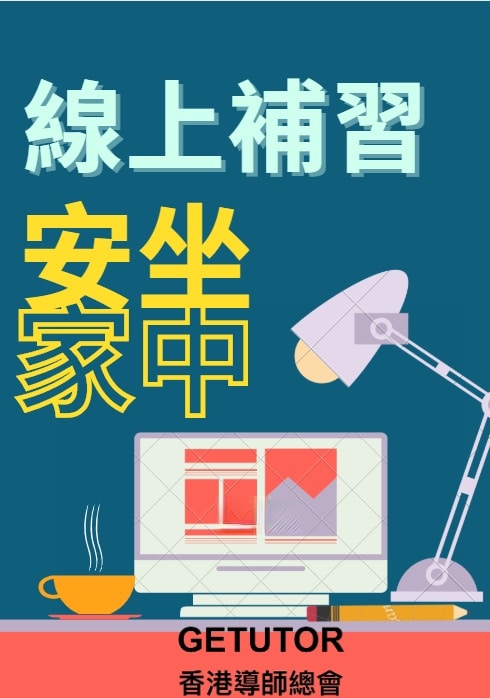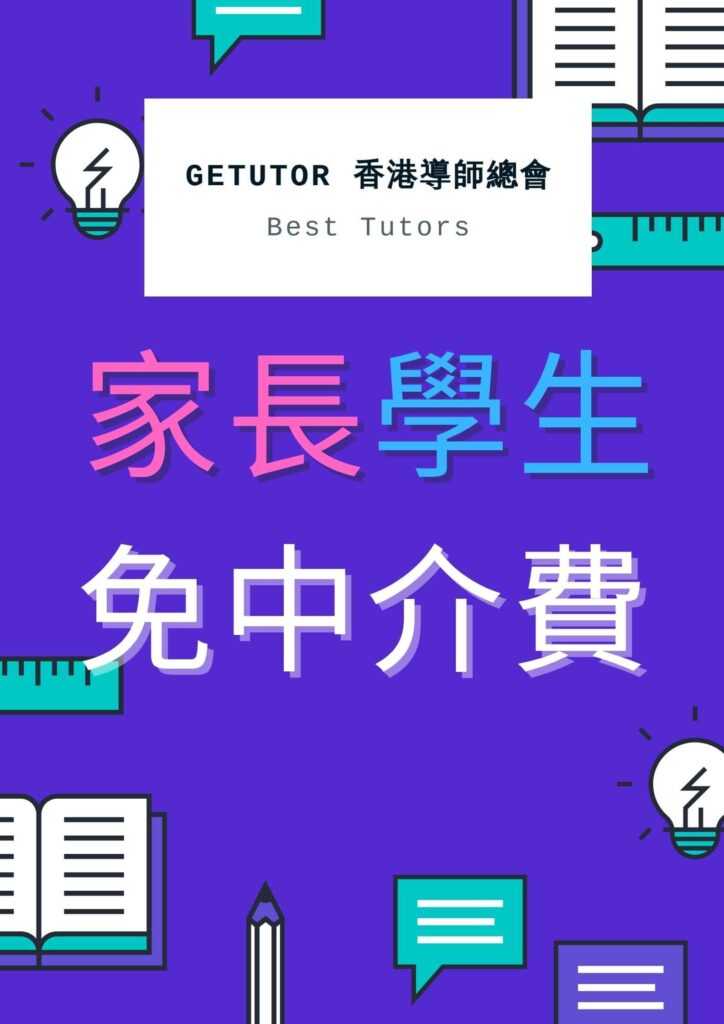IB education is a globally recognized international diploma system that provides comprehensive education from kindergarten to college preparatory. The IB curriculum covers intellectual, emotional and personal development and aims to cultivate students with an international perspective and comprehensive abilities. This article will delve into the content of the IB curriculum to help readers fully understand the advantages and importance of the IB education system.
Key points summary:
- IB education provides a comprehensive education from kindergarten to college preparatory.
- The content of the IB curriculum covers many aspects such as intellectual, emotional and personal development.
- IB education aims to cultivate students with an international perspective and comprehensive abilities.
- This article will delve into the content of the IB curriculum and help readers understand the importance of the IB education system.
- Hong Kong Tutors Association GETUTOR matches tutors for free.
Canada’s current Prime Minister Justin Trudeau and other successful people are outstanding graduates of the IB education system
According to official records, celebrities such as Canada’s current Prime Minister Justin Trudeau, Japan’s first spacewalker Akihiko De, World Food Agency director Marina, and Bangdai founder Brian are all outstanding graduates of IB education. These examples of successful people demonstrate the value and far-reaching impact of IB education.
The IB education system provides students with a globally recognized international diploma, aiming to cultivate students with international vision, comprehensive abilities and social responsibility. This educational philosophy is not only reflected in academics, but also emphasizes the development of students' emotional and personal qualities so that they can become global problem solvers and leaders.
The core values of IB education include global awareness, whole-person development, intercultural understanding and respect for traditional values. These values run through the entire education system, helping students integrate into and embrace different cultures in the era of globalization while becoming internationally competitive and leading.
The examples of Canada's current Prime Minister Justin Trudeau and other successful people prove the IB education system's excellent teaching and ability to cultivate students. The success of these outstanding graduates illustrates the long-term impact of IB education on individuals and its importance in a globalized society.
| celebrity | Profession |
|---|---|
| Justin Trudeau | Canada's current Prime Minister |
| Akihiko Hoshide | Japan's first spacewalker |
| Marina | Head of World Food Program |
| Brian | Founder of Bangdai |
The origin and mission of IB education
The origins of the IB education system can be traced back to the 1920s. After World War I, educators and thinkers realized that a large part of the cause of the war was the lack of understanding and intolerance between people. Under this trend of thought, the prototype concept of the International Baccalaureate Organization (IB) was born. The mission of IB education is to cultivate inquiring, knowledgeable and caring young people who will contribute to creating a better and peaceful world through understanding and respect for multiculturalism.
IB education is student-centered and focuses on all-round development. It not only focuses on the acquisition of academic knowledge, but also focuses on students' emotional, social and personal development. The IB education system cultivates students' critical thinking, problem-solving abilities and international perspective by providing a variety of subjects and courses.
The mission and values of the IB education system are reflected in its core elements, including Extended Essay, Theory of Knowledge and Creation, Action and Service (CAS). These core elements are designed to develop students' research capabilities, interdisciplinary thinking, and social responsibility. Through the study of these core elements, students can develop more comprehensive skills and literacy, laying a solid foundation for their future academic and professional careers.
| The origin and mission of IB education | |
|---|---|
| origin | Reflections of educators and thinkers after the end of World War I in the 1920s |
| mission | Cultivate young people with international vision and comprehensive abilities to contribute to creating a better and peaceful world |
| The Core Element | Monographs, epistemology and the cultivation of creativity, action and service |
IB curriculum setting and structure
The core curriculum of the IB education system is the IBDP (International Baccalaureate Program), which includes three core courses and six subject groups, including 31 subjects and 56 courses. Core courses include Special Topics, Epistemology and Creation, Action and Service. Students can choose subjects that interest them at Higher Level (HL) and Standard Level (SL).
The IBDP program is designed and structured to provide comprehensive academic and personal development. IB students will cover a variety of subject areas during their studies, including language and literature, mathematics, science, humanities and social sciences. The IB education system develops students' critical thinking, problem-solving skills and international perspective by providing challenging courses and assessment methods.
| IBDP core courses | suject | Course Difficulty |
|---|---|---|
| Special papers | natural science | HL/SL |
| social science | HL/SL | |
| Humanities | HL/SL | |
| epistemology | philosophy | HL/SL |
| Psychology | HL/SL | |
| Religious Studies | HL/SL | |
| Create, act and serve | dramatic arts | HL/SL |
| music | HL/SL | |
| visual art | HL/SL |
These core courses form the basis of the IBDP curriculum and are designed to develop students' critical thinking, independent research skills and social responsibility. In addition to core courses, students can also choose subjects of interest for in-depth study. The structure and flexibility of the IBDP program provide students with a personalized learning experience so that they can develop professional knowledge and skills in a field they are passionate about.

Overview of IB course content
The IB curriculum involves multiple disciplines and six subject groups, aiming to cultivate students' comprehensive abilities and international perspective. The entire curriculum contains 31 subjects and 56 courses, offering choices of different difficulty levels (HL and SL).
The following are the main subject areas covered in the IB curriculum:
- Language and Literary Studies
- language acquisition
- individual and society
- math
- art subjects
- scientific disciplines
Each subject has different course objectives and content, covering a wide range of knowledge areas. Students can choose corresponding subjects and course difficulty standards based on their own interests and goals. This helps students develop holistically and gain knowledge and skills that prepare them for future academic and career paths.
| academic area | Course content |
|---|---|
| Language and Literary Studies | Read and analyze literary works and study different cultural and linguistic expressions |
| language acquisition | Learning and mastering a second language involves listening, speaking, reading, writing and cultural exchange |
| individual and society | Study knowledge and issues in social science fields such as history, geography, economics and politics |
| math | Learn mathematical theory, applications and problem-solving skills |
| art subjects | Explore different forms of artistic expression including visual arts, performing arts and design |
| scientific disciplines | Study knowledge and experimental skills in natural science fields such as biology, chemistry, physics and environmental sciences |
"The goal of the IB curriculum is to cultivate students with an international perspective and comprehensive abilities, providing a diverse learning environment by covering multiple subjects and subject areas."
Through the IB curriculum, students will have the opportunity to learn and explore in different subject areas and develop critical thinking, problem solving and cross-cultural communication skills. This will lay a solid foundation for their future academic and career development and enable them to become globally competitive talents.
Core elements of the IB curriculum
The core elements of the IB curriculum include Extended Essay, Theory of Knowledge and Creation, Action and Service (CAS). These elements are designed to develop students' independent thinking skills, critical thinking skills, and social responsibility.
Extended Essay
The thesis requires students to choose a topic from their subject and explore that topic in depth. This requires students to conduct independent research, collect and analyze relevant information, and write a long paper. Through this process, students develop research abilities, critical thinking, and writing skills.
Theory of Knowledge
Epistemology is an interdisciplinary course designed to develop students' critical thinking skills. By discussing and exploring different areas of knowledge, students learn how to apply different knowledge tools for thinking and problem solving.
Creation, Action and Service (CAS)
Creativity, Action and Service is an important learning component designed to foster students' personal and social development. By participating in a variety of meaningful extracurricular activities, such as community service, artistic performances, and sports, students are able to develop their interests and talents while making positive contributions to society.

GETUTOR, the Hong Kong Tutors Association, is a professional education platform that provides tutoring services for IB courses. They can help students understand and apply the core elements of the IB curriculum and provide personalized learning support to help students achieve excellence.
| The Core Element | describe |
|---|---|
| Special papers | Students choose a topic from their studied subjects, conduct independent research and write a full-length paper. |
| epistemology | Interdisciplinary courses develop students' critical thinking skills and critical thinking skills. |
| Create, act and serve | Promote students' personal and social development through participation in a variety of extracurricular activities. |
AP course introduction
AP (Advanced Placement) courses are American college preparatory courses that provide high school students with a college-level learning experience. This program is sponsored by the College Board and is designed to help students gain early access to college courses and earn college credit. AP courses cover a wide range of subject areas, including social sciences, science, mathematics, literature, foreign languages, art and other fields.
AP courses are rigorously designed and in-depth in content, requiring students to have a certain academic level and learning ability. Through the study of AP courses, students can gain an in-depth understanding of the knowledge and content of specific subject areas and achieve higher academic achievements in high school. In addition, AP exams are also an important reference indicator in the college admissions process and can help students gain a competitive advantage in college applications.
In Hong Kong, there are specialized education platforms such as GETUTOR, the Hong Kong Tutors Association, which provide tutoring services for AP courses. These tutors have been strictly selected and professionally trained, and have rich teaching experience and deep subject knowledge. They can provide personalized guidance based on students' needs and learning goals, helping students master the content of AP courses and improve their academic performance.
Whether you choose IB or AP courses, Hong Kong Tutors Association GETUTOR can provide suitable tutors according to students' needs. These tutors can provide systematic teaching guidance to help students achieve better academic results and lay a solid foundation for their future development.
| AP course advantages | AP Exam |
|---|---|
|
|
Comparison of IB and AP
The IB education system and AP courses are two different international education systems. Although they both aim to provide high-quality education, they are different in many aspects. The following table compares the differences between IB and AP in terms of education system, course structure, and course content.
| IB education system | AP courses | |
|---|---|---|
| education system | Provide comprehensive education from kindergarten to high school | Advanced Placement courses for high school students |
| course structure | Three core courses and six subject groups | Includes 22 subjects and 37 subject areas |
| Course content | 31 subjects and 56 courses covering multiple areas | Detailed course content for specific subjects |
| Academic requirements | Emphasis on students' comprehensive development and international perspective | Focus on subject studies and pre-requisite courses at the university level |
| college application | Offering a globally recognized international diploma | Helps gain a competitive edge in college applications |
Depending on personal circumstances and needs, there are different considerations when choosing the IB education system or AP courses. The IB education system is more suitable for students who pursue comprehensive ability development and international education, while AP courses are more suitable for students who want to gain early exposure to college courses and obtain college credits. No matter which one you choose, it is all about providing better education and helping students develop in an all-round way.
If you need to know more about the IB education system or AP courses, or are looking for tutors to help you learn these courses, Hong Kong Tutors Association GETUTOR can provide free matching tutor services to ensure that you receive the most suitable guidance.
Factors to consider when choosing IB or AP
When deciding to take IB or AP courses, students need to consider a number of factors, including personal academic interests and future college application requirements.
First of all, academic interest is one of the important considerations when choosing IB or AP. The IB education system focuses on cultivating students' comprehensive abilities and international perspectives, and is suitable for students who have strong interest in multiple fields of study. AP courses, on the other hand, focus more on preparatory courses in college and are suitable for students who have a deep interest in specific subjects and want to gain early exposure to college courses.
In addition, college application requirements should also be taken into consideration. The IB education system provides a globally recognized International Baccalaureate, which may give students a competitive advantage in university applications. The test scores of AP courses can provide an important reference for college applications. Therefore, students need to understand the target university’s preference for IB or AP courses in order to make a choice that suits them.
To sum up, choosing IB or AP courses requires comprehensive consideration of personal academic interests and university application requirements. The IB education system focuses on students' comprehensive development and international education, and is suitable for students seeking multi-field subject learning and comprehensive ability development. AP courses provide college-level preparatory courses, suitable for students who have a strong interest in specific subjects and want to gain early exposure to college courses.
Hong Kong pp application
In Hong Kong, there are specialized education platforms such as the Hong Kong Tutors Association that provide tutoring services for IB and AP courses. Hong Kong pp helps students find suitable tutors, matches students according to their needs and learning goals, and provides professional tutoring guidance to help students better master course content and improve academic performance.
GETUTOR, the Hong Kong Tutors Association, is a professional education platform that provides free matching tutoring services. Students can apply for tutors for IB or AP courses through the Hong Kong app platform, and choose the appropriate tutor for one-on-one tutoring based on their needs and learning goals.
The tutors on the Hong Kong pp platform have been strictly screened and evaluated, and have rich teaching experience and professional knowledge in related disciplines. They can tailor study plans according to students' specific conditions and provide targeted tutoring guidance to help students overcome difficulties and improve academic performance.
in conclusion
Both the IB education system and AP courses provide high-quality international education. Choosing IB or AP requires considering academic interests, college application requirements, and learning goals. No matter which one you choose, it is all about providing better education and helping students develop in an all-round way.
The IB education system focuses on the comprehensive development of students, emphasizing multi-faceted school management and students' comprehensive ability cultivation. It offers a globally recognized international diploma that gives students a competitive advantage in their studies and future development. Students who choose the IB program can benefit from a multicultural learning environment and the development of an international perspective.
AP courses focus on preparatory courses for college and provide high school students with college-level elective courses. Students who choose AP courses can gain early exposure to college courses and earn college credit. This is especially a competitive advantage for students interested in entering American universities.
In summary, choosing IB or AP should be considered based on the student's situation and needs. No matter which one students choose, the purpose is to provide better education and help students develop in an all-round way.
in conclusion
The IB curriculum covers multiple subjects and six subject groups to cultivate students' comprehensive abilities and international perspective. The IB education system and AP courses are different, each with its own unique characteristics and advantages. The choice of IB or AP should be considered based on the student's situation and needs. The IB education system provides students with a globally recognized international diploma, helping them gain a competitive advantage in their studies and future development.
Don’t forget that in Hong Kong, the Hong Kong Tutors Association GETUTOR provides free matching tutoring services. Whether you choose IB or AP, tutors can help you better master the course content and improve your academic performance. GETUTOR, the Hong Kong Tutors Association, will find suitable tutors for you based on your needs and learning goals and provide professional guidance and support.
No matter which one you choose, the IB education system or AP courses, they are all designed to provide a better education and help students develop in an all-round way. Please consider carefully whether IB or AP based on your student's interests, goals, and needs to get the educational experience that best suits you.
FAQ
What areas does the IB curriculum cover?
The IB curriculum covers different fields such as language and literature studies, language acquisition, individual and society, mathematics, art subjects and science subjects, with a total of 31 subjects and 56 courses.
What are the core elements of the IB curriculum?
The core elements of the IB curriculum include Extended Essay, Theory of Knowledge and Creation, Action and Service (CAS).
What are AP courses?
AP (Advanced Placement) courses are American college preparatory courses, sponsored by the College Board, providing college-level courses at the high school level.
What is the difference between IB and AP?
The IB education system covers kindergarten to high school, presenting a more comprehensive education system; while AP specifically provides college-level elective courses for high school students.
How to choose IB or AP courses?
Choosing the IB education system requires consideration of academic interests and students pursuing all-round development; while choosing AP requires consideration of university application requirements and the need for early exposure to university courses.




